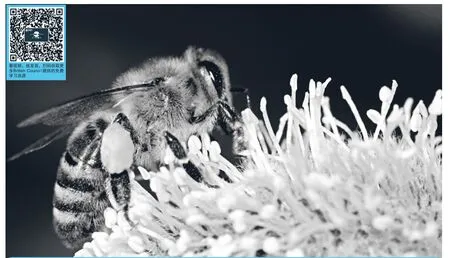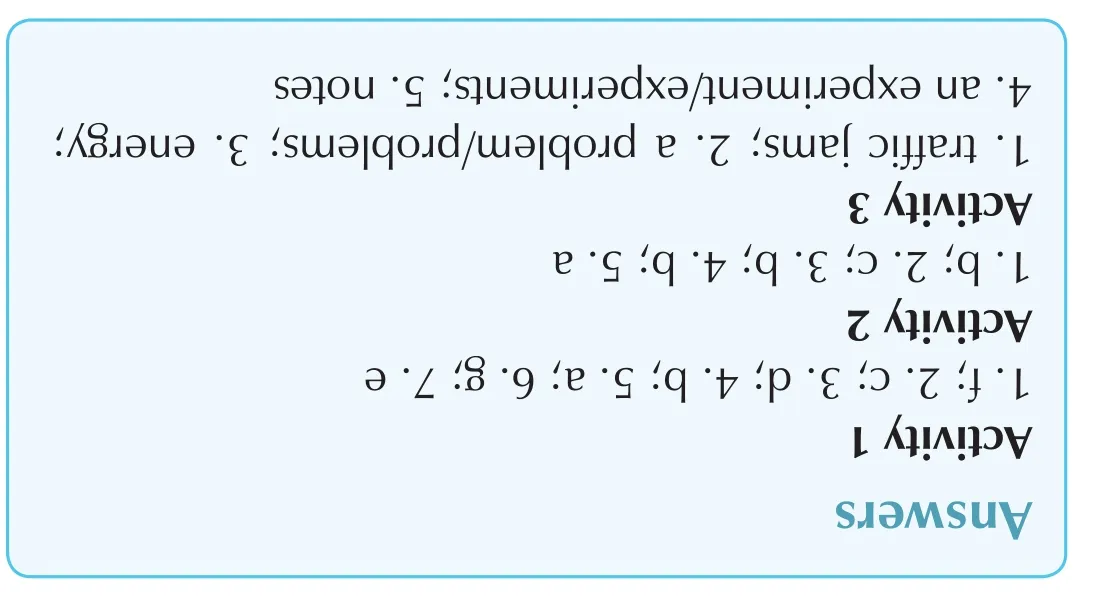小小蜜蜂有辦法
小小蜜蜂有辦法
Bees Solve a Problem

Activity 1
Before you read, match the word to a definition.

1. artificial 2. calculate 3. examine 4. nectar 5. network 6. pollen 7. seed
a. a connection of many different parts which helps us to communicate, e.g. by telephone or Internet
b. a liquid which plants make and bees use to create honey
c. find an answer to a question after thinking about it
d. look at something very carefully to find out information about it
e. a small object produced by a plant and from which a new plant can grow
f. not real
g. the yellow powder flowers make which insects carry to other flowers


A recent experimentproves[證明]that bees can save time and energy when they fly around to different flowers.
Behaviour 行為研究
Dr. Nigel Raine, from the Royal Holloway University of London, has always been interested in finding out why animals behave like they do. He is also interested in bees. It was not a surprise when he and some other scientists from Queen Mary University of London discovered that bees can quickly solve a problem that takes computers many days.
A Shorter Path 一條更短的捷徑
Flowers make pollen, and when bees visit them, they carry the pollen to other flowers. The plants need the pollen to make seeds that will grow. Dr. Raine notes that we get a lot of our food from plants, so it is important to know how the bees move around and take the pollen between flowers. The scientists wanted to examine the journey that the bees take and how they save energy when they do this. They completed the experiment on the roof of Queen Mary University, using artificial flowers and a large amount of nectar. They taught one bee to visit all the flowers in one place at the same time. When the bee got to know the location of the flowers well, they saw how it flew around and returned home with the nectar. After this, they changed the locations of the flowers. The scientists thought the bee would follow the route it knew already. This would mean that it followed a longer route than it needed to, and so it would use more energy. They watched the bee carefully as it travelled between the flowers in their new location, and they made notes. But in the experiment, the bee changed its route and flew a shorter distance.
Travelling Salesman 旅行推銷員問題
The problem that the bee solved is similar to a maths puzzle called the “travelling salesman problem.” A salesman who goes to different places to sell things wants to travel the shortest distance to do this. If he is going to visit many places, it is not easy to know which the shortest route is. You have to calculate the length of many possible routes to know which one is the shortest. A computer can calculate this but the experiment shows bees can do the same calculation quickly with a tiny brain. Scientists are very interested in how they do this. It would help us to understand how pollen is moved around. In addition, if they find this out, it could help us to improve communication networks. This might help humans to reduce traffic jams when there is an accident, for example.
Activity 2
Select the correct answer, a, b or c.
1. What is the best description of Dr. Nigel Raine’s main science interest?
a. Bees and honey.
b. Animal behavior.
c. Bees and computers.
2. What did the scientists want to find out from the experiment?
a. How quickly bees collect pollen from flowers.
b. Whether some bees collect pollen quicker than other bees.
c. The route bees take and if they save energy.
3. When the bees made the journey after the locations of the flowers changed…
a. they flew more quickly than before.
b. they found a short and efficient route.
c. they took the same route they knew from before.
4. What was surprising about the results of the experiment?
a. The bees showed signs of being very intelligent.
b. The bees were faster at problem solving than computers.
c. The bees can help travelling salesmen.
5. One reason scientists are interested in how the bees calculate routes is because…
a. it may help humans improve the way they communicate.
b. they want to drive to work more quickly.
c. it will help them understand how bees communicate.
Activity 3
Collocations[搭配]are words that frequently go together. The following examples from the reading text are verb + noun collocations:
a. solve a problem
b. save energy
c. complete an experiment
d. make notes
e. reduce traffic jams
Complete the sentences using one of the nouns above to make more verb + noun collocations. You may need to make the noun plural.
1. I always get stuck in ( ) on my way to work.
2. My computer has not been working well recently and this is causing ( ) for me.
3. We need to make sure people do not waste ( ) if we want a greener planet.
4. In order to test their ideas, the scientists carried out ( ).
5. I always take good ( ) during my science lectures and review them after class.
Activity 4
Were you surprised with the results of the experiment? Why or why not? What other examples of animal intelligence can you think of? Do you know of any other interesting experiments using animals?


